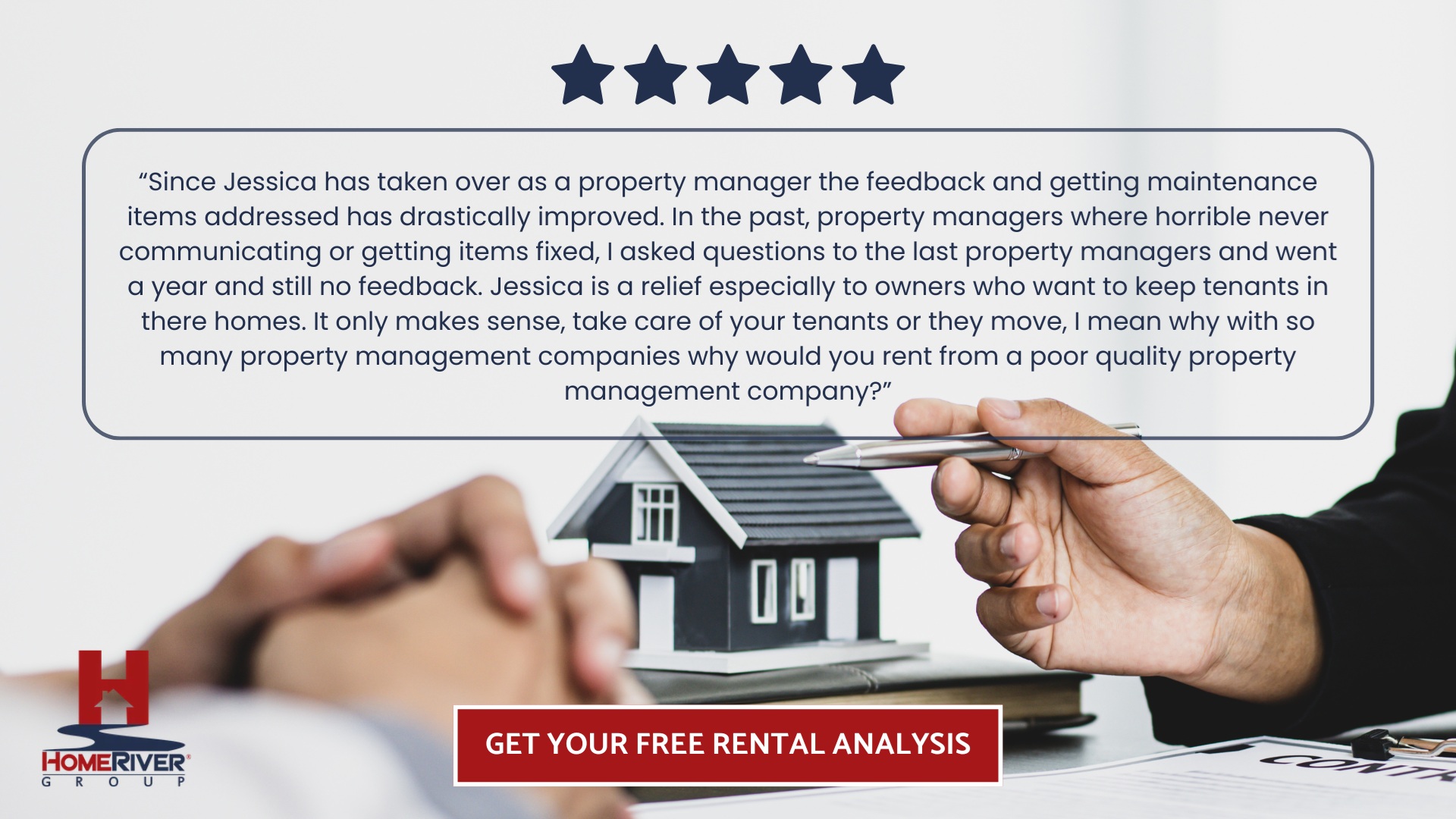
At HomeRiver Group, we manage over 40,000 properties nationwide with a seamless blend of scale and precision. Our owners benefit from transparent reporting, advanced compliance systems, and dependable tenant placement. Tenants trust us for responsive service and well-maintained homes, while investors rely on our consistent track record of maximizing returns. With national reach and local expertise, we set the standard for professional property management across diverse markets.
Orlando real estate investment continues to capture attention for its mix of strong rental demand, population growth, and vibrant economic activity. The city’s expanding job market, tourism influence, and appealing lifestyle create fertile ground for investors seeking stability and opportunity. From family-friendly suburbs to dynamic urban communities, Orlando offers a unique spectrum of investment possibilities that continue attracting buyers nationwide, eager to explore what this thriving market offers.
In this blog, we will explore the factors driving Orlando’s real estate growth, the benefits that attract investors to the city, and the strategies that can help maximize returns in this competitive and fast-evolving market.
Neighborhoods Delivering The Highest Cap Rates
Investors evaluating Orlando real estate investment opportunities consistently gravitate toward neighborhoods that balance rental demand, property values, and long-term growth. A close look at current cap rates across the city tells a clear story: some zip codes outperform the rest.
Metrowest And Its Multifamily Appeal
Metrowest has built a reputation for strong multifamily property returns. Its proximity to Universal Orlando Resort and major highways makes it attractive to tenants and investors. The diverse rental pool includes young professionals, families, and hospitality workers, driving stable occupancy and above-average cap rates.
Lake Nona As A Health And Innovation Hub
Lake Nona is another standout. Known for its rapid development and reputation as a health and life sciences hub, Lake Nona continues to see impressive rent growth and sustained tenant demand. Investors targeting single-family and townhouse rentals report cap rates rivaling many emerging Sun Belt markets.
Downtown Orlando And Urban Lifestyle Demand
Meanwhile, Downtown Orlando and the neighboring neighborhoods of Thornton Park and SoDo maintain investor interest due to an influx of urban professionals. Downtown's revitalization, the presence of major employers, and an expanding entertainment scene support high rental rates and solid cash flow potential.
South Semoran And Pine Hills For Value-Driven Entry
South Semoran and Pine Hills offer value-driven entry points outside the core tourist corridors. These areas frequently show higher gross yields thanks to lower acquisition costs and resilient demand from working-class tenants. Investors targeting value-add strategies have extracted even higher margins in these neighborhoods by focused renovations and strategic management.
Adapting To Local Market Shifts For ROI
Local market shifts can affect yields, but these Orlando neighborhoods continue to top the charts for cap rate performance and ROI for serious real estate investors. Remaining flexible and continuously assessing property-specific factors ensures long-term profitability.
Economic Drivers Fueling Long-Term Appreciation
Orlando’s economic landscape has transformed over the last decade, evolving from a tourism-centric destination into a dynamic, diversified market. Major employers like Walt Disney World, Universal Orlando, and AdventHealth remain central. Still, the city’s continued expansion in technology, healthcare, and logistics sectors is attracting a new wave of talent and investment. With over 1,000 people moving to Central Florida weekly, population growth brings demand for rental and for-sale properties, supporting steady appreciation.
Infrastructure Projects Strengthening Connectivity
Infrastructure investments are another key economic driver. Massive projects like the I-4 Ultimate improvement, the expansion of Orlando International Airport, and emerging SunRail connections mean improved connectivity and job access across the region. As these projects reach completion, their influence on real estate values becomes more pronounced, making the city’s neighborhoods even more attractive to long-term investors.
Resilience And Market Stability
Perhaps most important to real estate investors is the city’s resilience. Orlando’s steady job creation, business-friendly environment, and comparatively affordable cost of living have helped buffer the market from national downturns. This stability, robust demographic trends, and ongoing infrastructure growth set a strong foundation for long-term property value appreciation.
Positioning For Sustainable Growth
For investors, these economic drivers point to a market with strong fundamentals and sustained upward momentum. By focusing on areas poised to benefit most from job growth and infrastructure improvements, investors can position their portfolios to capture long-term appreciation and wealth-building opportunities.
New Construction vs Existing Homes: Investment Pros And Cons
Investors eyeing Orlando’s vibrant real estate market often weigh the options between new construction properties and existing homes. Each path offers strategic advantages and specific challenges, depending on the investor's investment goals, risk tolerance, and long-term vision for portfolio growth.
Advantages And Challenges Of New Construction
New construction homes boast the latest materials, energy efficiency standards, and modern layouts that attract today’s renters and buyers. These properties typically require fewer immediate repairs and can command higher rents, thanks to new amenities and curb appeal. For investors, warranties on HVAC systems, roofs, and appliances provide added confidence against early maintenance costs. However, new builds generally come with a higher upfront price and may be located on the outskirts of Orlando as land becomes scarce in established neighborhoods. This can mean longer lease-up periods as the area around a new development matures.
Opportunities And Risks Of Existing Homes
Existing homes, meanwhile, often offer investors the advantage of being situated in well-established neighborhoods with proven rental demand. Older properties might allow negotiation leverage, especially if cosmetic upgrades are needed. Value-add opportunities like renovations or conversions can lead to rapid appreciation and increased rental income. The challenge lies in potential maintenance issues, surprise repairs, and the competitive nature of acquiring these homes in desirable, centrally located parts of Orlando. Investors need to factor in renovation costs and the risk of vacancies during improvement projects.
Finding The Right Fit For Portfolio Growth
The Orlando market supports a range of strategies, whether investors are drawn to the reliability and allure of new builds or the classic charm and opportunity of existing homes. Each option carries its own considerations in a city where growth and opportunity continue to attract national attention.
Regulatory Environment And Landlord-Tenant Laws In Orlando
Orlando operates under Florida’s landlord-tenant laws, which are widely viewed as supportive of property owners. These regulations clarify lease renewals, rent collection, evictions, and security deposits, giving investors confidence and consistency in managing rental properties.
Balanced Notice Periods & Repair Requirements: The laws establish reasonable notice periods for lease terminations and repair requests. This balance allows landlords to retain control over their properties while respecting tenant rights, reducing conflict, and supporting smoother landlord-tenant relationships in Orlando’s rental market.
Flexibility In Setting Rental Rates: Unlike cities with strict rent control, Orlando allows property owners to adjust rents according to market conditions. This flexibility helps landlords respond to demand shifts, inflation, and neighborhood changes, ensuring profitability and competitive positioning.
Efficient Eviction Processes For Nonpayment: Florida law provides a streamlined eviction process when tenants fail to pay or violate lease terms. This efficiency helps investors mitigate financial risk, reduce prolonged vacancies, and maintain steady cash flow across their portfolios.
Clear Guidelines Supporting Investment Confidence: The regulatory environment emphasizes transparency and consistent rule enforcement. By ensuring landlords and tenants understand their obligations, Orlando fosters a healthy investment climate that minimizes ambiguity and protects property rights in a growing rental market.
How HomeRiver Group Simplifies Orlando Asset Management
Navigating the Orlando real estate investment demands a partner equipped to anticipate market trends, keep properties operating at peak performance, and ensure every asset is positioned for long-term value growth. Asset management in a dynamic market like Orlando requires meticulous oversight, deep local knowledge, and robust systems to handle everything from leasing and maintenance to compliance and financial reporting.
Leveraging Local Teams With Regional Insight
Dedicated local teams bring regional expertise, tracking neighborhood-level shifts and rental demand patterns that allow investors to maximize returns. Centralized operations cover the essentials that scale across multiple properties, leveraging industry-leading technology for seamless rent collection, audit-grade accounting, and transparent reporting. This integrated approach gives property owners confidence and clarity, whether holding a single rental or a portfolio spread across the Orlando metro.
Identifying Opportunities For Value-Add Enhancements
Strategic asset management also extends to property enhancements. By analyzing market data and tenant preferences, opportunities are identified for renovations or amenity upgrades that yield higher rents and stronger occupancy rates. Expert guidance ensures every dollar invested in property improvements is optimized for return.
Balancing Tenant Satisfaction With Operational Efficiency
Efficient management systems balance tenant satisfaction with operational efficiency. Responsive maintenance, compliant leasing practices, and proactive communication shape better resident experiences and help minimize costly vacancy periods. With rigorous financial controls, investors are equipped with the insights and support necessary to navigate Orlando’s ever-changing rental market, confident that their properties are in experienced hands.
Final Thoughts
Orlando’s real estate market continues to attract investors seeking growth and stability. The city’s dynamic economy, driven by tourism, tech, healthcare, and education, attracts newcomers and supports a strong rental market. Steady population growth and ongoing infrastructure improvements create long-term value, while the region’s business-friendly climate offers unique opportunities for expanding portfolios.
At HomeRiver Group, we combine deep local expertise with a national platform, ensuring clients benefit from up-to-date market insights and seamless property management services. Our commitment is to protect and grow your investment, leveraging Orlando’s strengths while minimizing day-to-day complexities for owners and residents. With a thorough understanding of local trends and a comprehensive approach to asset management, we help investors realize the full potential of their Orlando real estate portfolios.
Orlando’s appeal shows no sign of slowing: consistent demand, a resilient economy, and robust property appreciation rates make it a top choice for discerning investors. By partnering with HomeRiver Group, you gain a dedicated ally focused on exceptional service and maximizing your property’s performance in this thriving market. Orlando is primed for investment. Let’s maximize your returns together.
Read also:
Real Estate Investment Strategies: Proven Approaches To Grow Wealth
Leasing Vs. Renting: Understanding The Key Differences For Tenants And Owners
Frequently Asked Questions About Orlando Real Estate Investment
What types of properties are most popular for investment in Orlando?
Single-family homes, condos, and townhouses remain top choices for investors in Orlando. Short-term and vacation rentals are consistently in demand, particularly near theme parks and major attractions, while long-term rental properties offer steady cash flow and lower turnover.
What makes Orlando attractive for real estate investors?
Orlando boasts a strong job market, population, world-class attractions, and a robust tourism industry. These factors create high rental demand and excellent property appreciation potential, drawing local and out-of-state investors.
How has Orlando’s population growth affected the real estate market?
The city’s rapid population growth has increased housing demand, increasing property values and rental rates. This sustained influx of new residents creates opportunities for buy-and-hold and short-term investment strategies.
What are the rental yield averages in Orlando?
Rental yields in Orlando typically range between 5% and 8%, depending on the neighborhood, property type, and management approach. Premier locations near business centers and tourist attractions often deliver above-average returns.
Which neighborhoods in Orlando are best for real estate investment?
Neighborhoods like Lake Nona, Baldwin Park, and Winter Park are popular because of their high appreciation potential and strong rental demand. Kissimmee and Davenport are also attractive, especially for investors targeting short-term vacation rentals.
How does the tourism industry impact Orlando’s real estate market?
Tourism drives consistent rental demand year-round, especially for vacation homes and short-term rentals. Properties close to major attractions benefit from higher occupancy rates and premium rental pricing.
Are there tax benefits for real estate investors in Orlando?
Yes, Florida’s favorable tax environment, no state income tax, and benefits like homestead exemptions, offers advantages for investors. Depreciation, deductible expenses, and strategic 1031 exchanges can further enhance returns.










